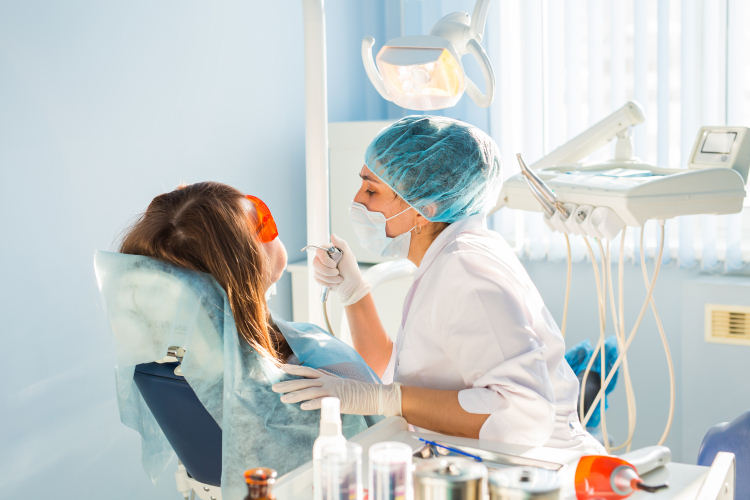
SAN DIEGO – Antibiotics prescribed by dentists may contribute to the growing problem of Clostridium difficile (C. diff), a serious and potentially deadly infection that causes severe diarrhea, suggests research presented at IDWeek 2017. And many of those antibiotics are likely unnecessary, researchers note.
Taking antibiotics can put patients at risk for developing C. diff and illustrates the importance of using the medications only when needed. The Minnesota Department of Health (MDH) tracked community-associated C. diff infections – meaning those in patients who did not have an overnight stay in a hospital or nursing home – in five counties in the state. During the six-year period, researchers determined 15 percent of those with the infection who had taken antibiotics had them prescribed for dental procedures.
But one-third of those patients’ medical charts included no mention of receiving dental procedure-related antibiotics, researchers determined. An earlier survey conducted by the MDH found 36 percent of dentists prescribed antibiotics in situations that are generally not recommended by the American Dental Association (ADA) and reported challenges to making appropriate antibiotic prescribing decisions, including confusion about or perceived conflicts among prescribing guidelines.
“Dentists have been overlooked as a source of antibiotic prescribing, which can potentially delay treatment when doctors are trying to determine what is causing a patient’s illness,” said Stacy Holzbauer, DVM, MPH, lead author of the study and career epidemiology field officer for the CDC and MDH. “It’s important to educate dentists about the potential complications of antibiotic prescribing, including C. diff. Dentists write more than 24.5 million prescriptions for antibiotics a year. It is essential that they be included in efforts to improve antibiotic prescribing.”
Dentists appropriately prescribe antibiotics in certain situations, such as to treat infections stemming from a tooth abscess. However, some dentists prescribe antibiotics prophylactically before a dental procedure to prevent a heart infection in patients with heart conditions, or to prevent an infection of an artificial joint, such as a hip or knee replacement. The ADA no longer recommends preventive antibiotics in most of those cases, as it once did. “It is possible some dentists aren’t aware of the updated recommendations or are being asked by other healthcare providers to continue preventive antibiotics despite the change,” said Dr. Holzbauer. Current recommendations note the risk of taking antibiotics – such as developing C. diff – is greater than the risk of an infection in those cases. Further, the inappropriate use of antibiotics helps fuel the creation of drug-resistant bacteria, which are very difficult to treat and are an increasing public health threat.
In the study, MDH researchers interviewed 1,626 people with community-associated C. diff between 2009 and 2015. Of those, 926 (57 percent) reported they had been prescribed antibiotics, 136 (15 percent) of those for dental procedures. The study found patients who were prescribed antibiotics for dental procedures tended to be older and more likely to receive clindamycin, an antibiotic that is associated with C. diff infection. Of those who had received antibiotics for a dental procedure, 34 percent had no mention of antibiotics in their medical charts, illustrating the disconnect between dental and medical care. During routine medical appointments, patients should bring up dental visits and medications, including antibiotics – they have taken. In addition, healthcare providers should ask patients about dental visits and medications taken for dental reasons.
Antibiotics kill bad and good bacteria in the gastrointestinal (GI) system. Wiping out the protective bacteria can allow the growth of C. diff bacteria, leading to severe and potentially deadly diarrhea. C. diff can occur after just one dose of antibiotics and is one of the top three most urgent antibiotic-resistant threats identified by the CDC. It caused almost half a million infections and led to 15,000 deaths in a single year, according to CDC estimates.
“Research has shown that reducing outpatient antibiotic prescribing by 10 percent could decrease C. diff rates outside of hospitals by 17 percent,” said Dr. Holzbauer. “Limiting the use of inappropriate antibiotics in dentistry could also have a profound impact.”
While the ADA has expressed a commitment to and is an active partner in antibiotic stewardship, a 2015 MDH survey of dentists found fewer than half were concerned about adverse drug effects, antibiotic resistance or C. diff as factors that influenced their prescribing decisions. That’s likely because they are unaware when their patients develop C. diff, Dr. Holzbauer said. Better communication between dental and medical communities and improved history taking by all prescribers would help, she said.
###
In addition to Dr. Holzbauer, co-authors of the study are Maria Bye, MPH and Tory Whitten, MPH.
About IDWeek
IDWeek 2017TM is the annual meeting of the Infectious Diseases Society of America (IDSA), the Society for Healthcare Epidemiology of America (SHEA), the HIV Medicine Association (HIVMA) and the Pediatric Infectious Diseases Society (PIDS). With the theme “Advancing Science, Improving Care,” IDWeek features the latest science and bench-to-bedside approaches in prevention, diagnosis, treatment, and epidemiology of infectious diseases, including HIV, across the lifespan. IDWeek 2017 takes place October 4-8 at the San Diego Convention Center in San Diego. For more information, visit http://www.idweek.org.
Media Contact
Rebecca Taylor
[email protected]
@IDSAInfo
http://www.idsociety.org





